As political, social, and economic tensions keep rising in Venezuela, young people are turning out by the masses to speak out on what they want for the future of their country. On February 12, tens of thousands of people protested in cities across Venezuela to ask President Nicolás Maduro to step down from power. But with the military still standing behind Hugo Chávez’s successor, a transition in favor of opposition leader and interim president Juan Guaido remains complicated.
Throughout February, most of the attention has shifted to Venezuela’s borders with Brazil and Colombia, where confrontations over internationally sent aid continue to unfold between the military, the opposition, and Venezuelan citizens. Over the weekend, the Venezuelan national guard killed at least four people, including Indigenous Pemón woman Zoraida Rodriguez, and injured more than 20 civilians as troops advanced into the southern town of Kumarakapay. According to The Guardian, Indigenous people responded by detaining four soldiers and facing off against the military’s tear gas and bullets for more than 24 hours.
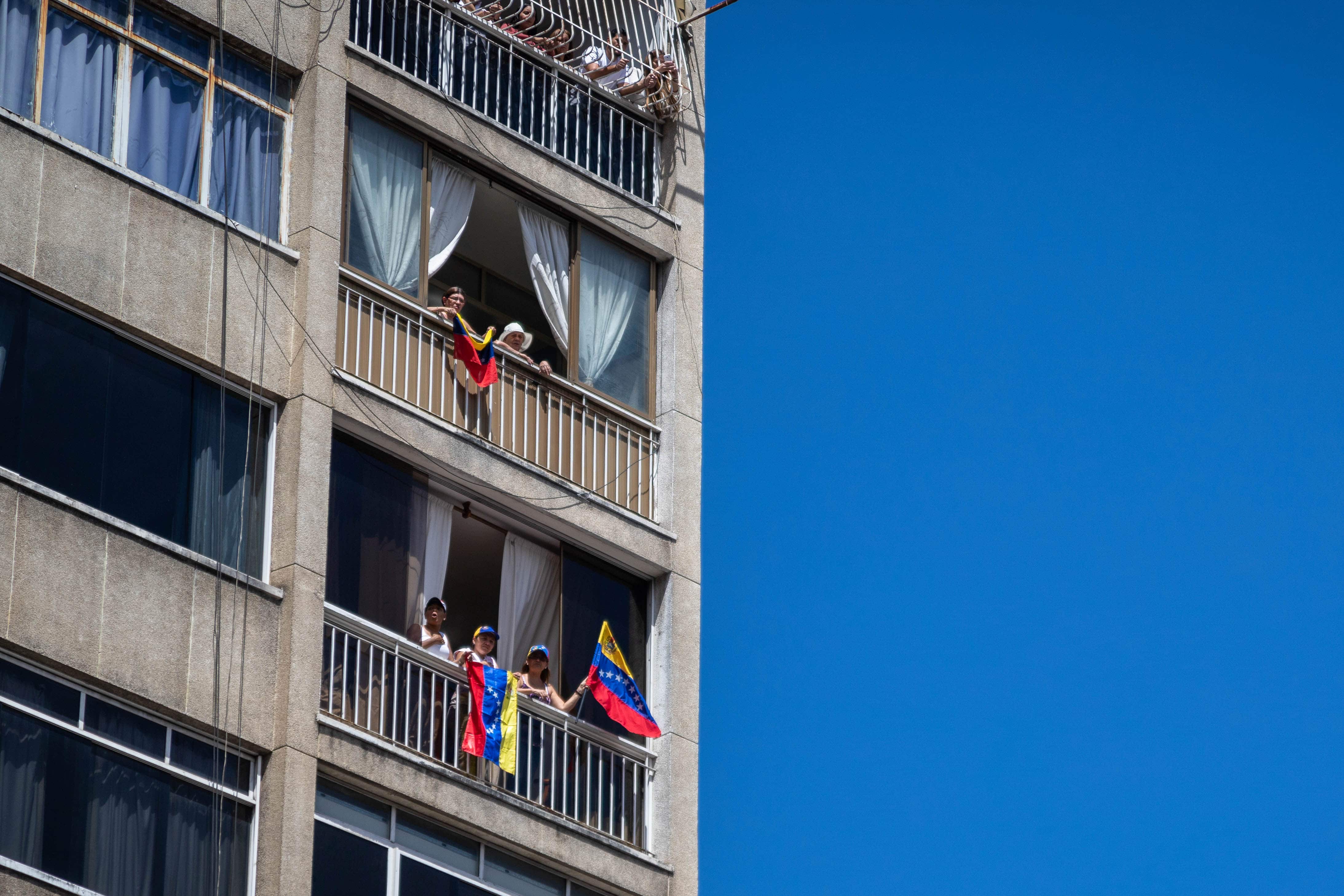
On the Colombian border, thousands of people gathered on February 23 for Venezuela Aid Live Concert, a festival sponsored by Virgin Group CEO Richard Branson. The internationally streamed event featured performances from artists, such as Juan Luis Guerra, Maluma, and Paulina Rubio to show solidarity with Venezuelans and ask the government to reopen borders so aid could enter the country.
But despite the messages of unity and hope, violent clashes and disputes between the US-supported opposition, their supporters, and the Venezuelan armed forces persisted, leaving nearly 300 people injured. In the meantime, little aid has been allowed into the country – with several trucks of food burning over the weekend – and many humanitarian activists worry about the implications of politicizing that aid.
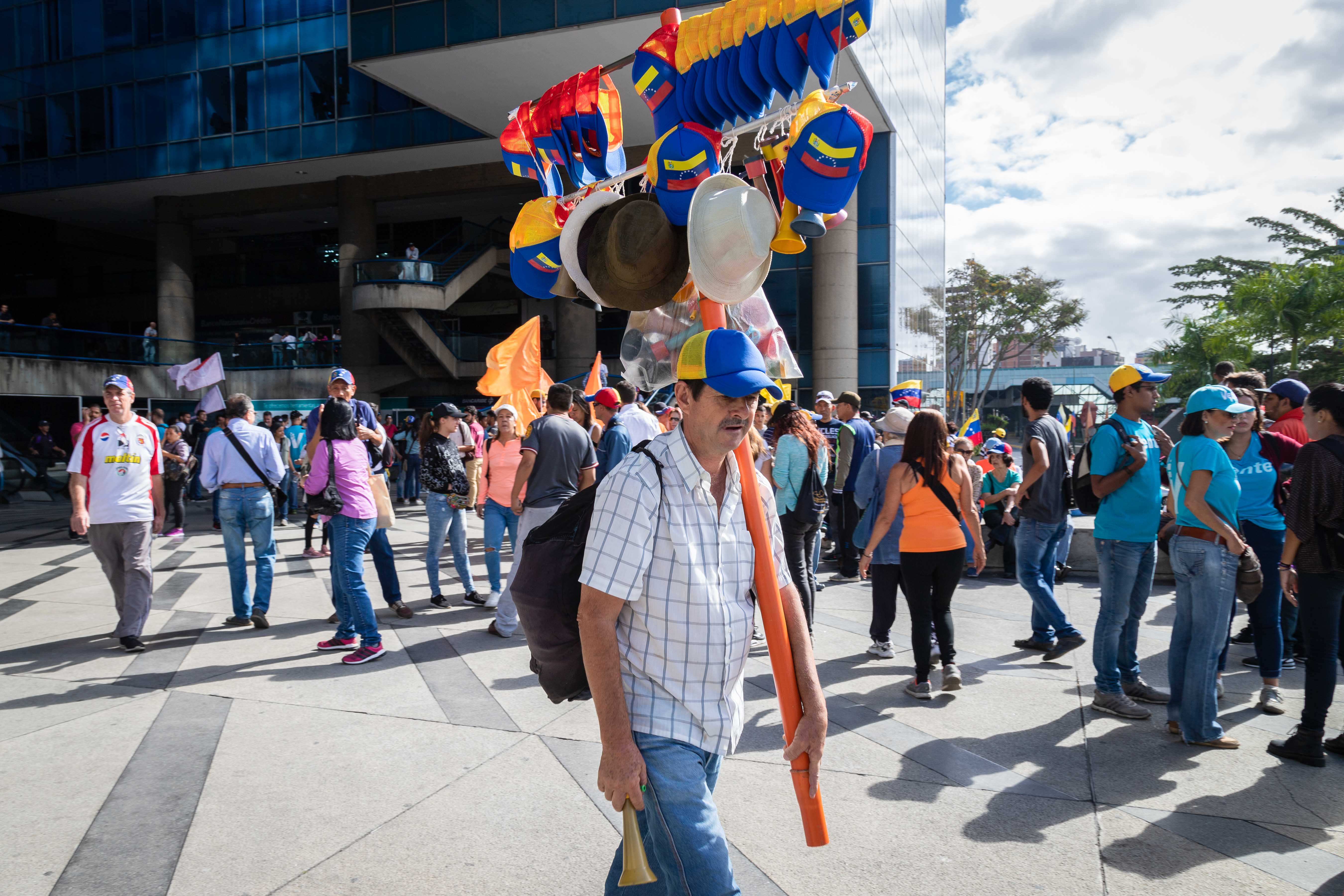
Both on the borders and within Venezuela, students and young people continue to be some of the most outspoken about the need for change, oftentimes putting their lives on the line during demonstrations. Many complain about the country’s crumbling educational system and the lack of opportunities for growth presented by the harsh economic and humanitarian crisis. As drastic food and medicine shortages push more and more people into struggling circumstances to survive, little energy or resources remain available for younger generations to try and thrive.
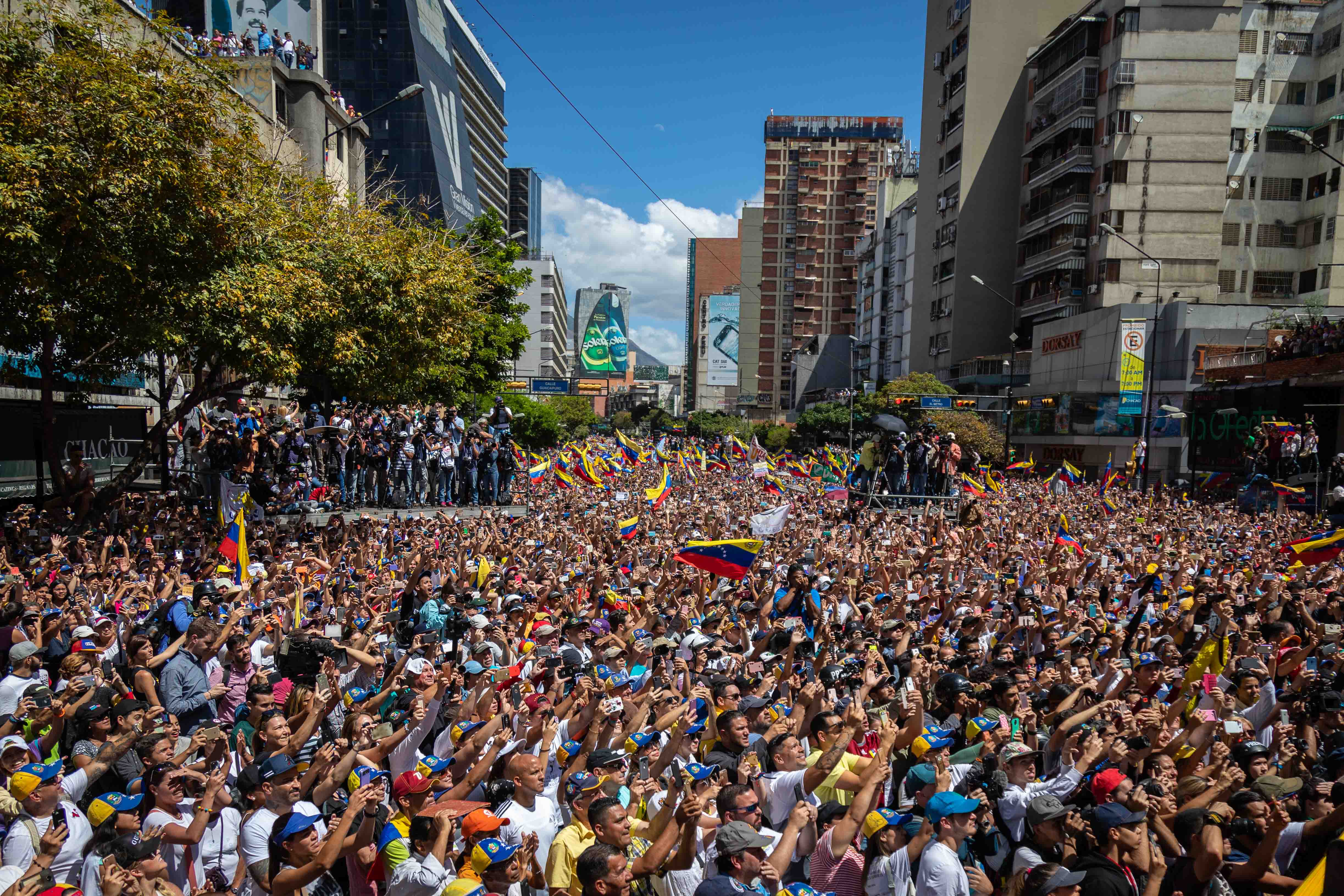
This generation has mainly grown up in the shadows of soaring crime rates, deteriorating public services, and highly censored media. As they consider what it would take to rebuild a country that works in favor of, rather than against, its people, one thing is clear – they’re ready and willing to do whatever they can to move Venezuela forward. Over the last few weeks, photographer Alejandro Granadillo headed to protests in Venezuela to chat with young people about the education system and their hopes. From an accountant to a communications professional to a high school student, this is how Venezuela’s youth feels about the present and future of their country.
Additional reporting by Alejandro Granadillo.
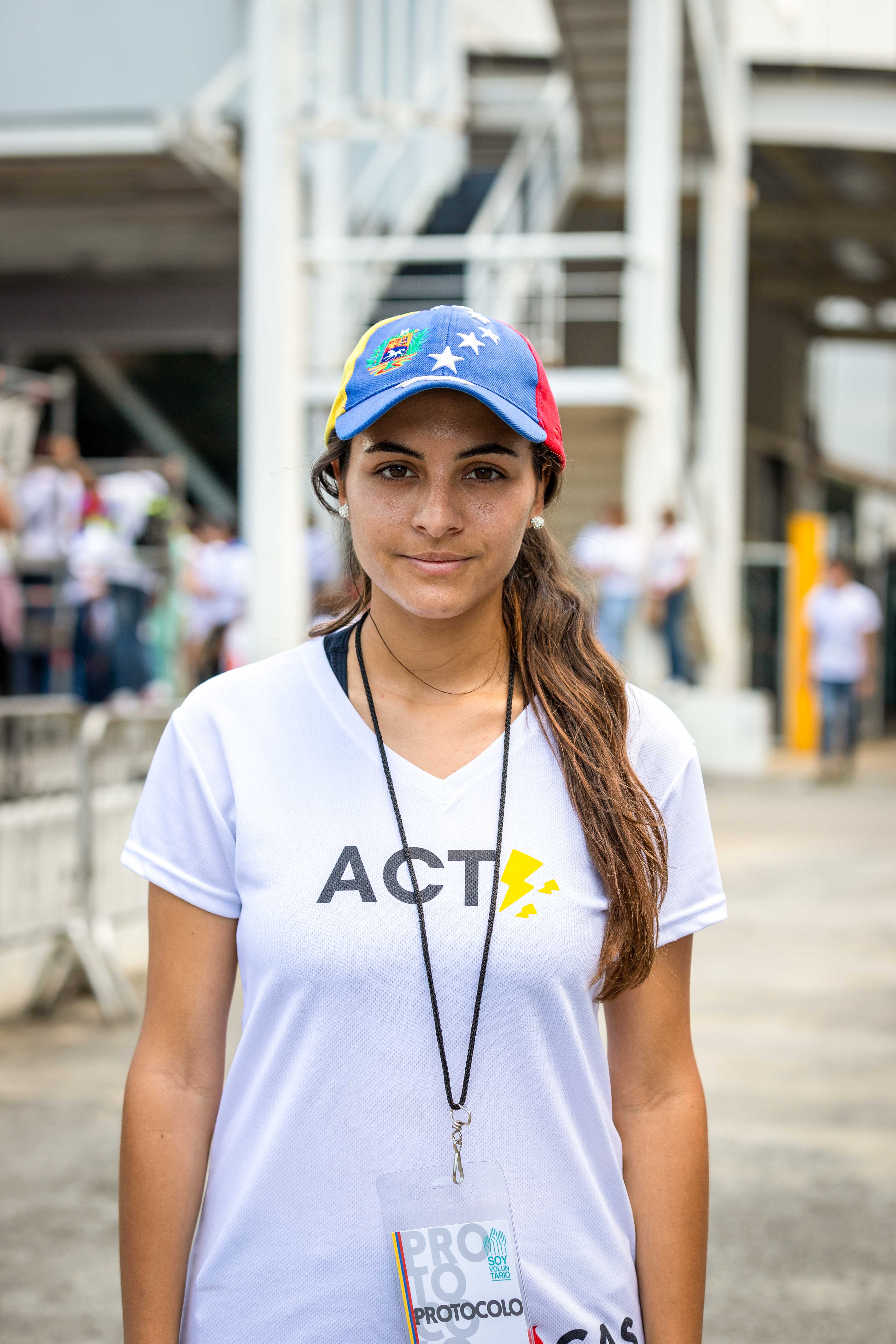
Isabella Ravelo, 21
I’m studying comunicaciones sociales at the Universidad Católica Andrés Bello. I am on the cusp of graduating. I am in the middle of my eighth semester. When I started, there were 12,000 students at Católica, and this year, there are 8,000 of us. There aren’t enough professors, and the pay … and the transportation, all of that which is happening in Venezuela, affects the students and affects the professors.
I hope that this year, there’s real change, a radical change, in the country’s [educational system]. I want to graduate in my country. I haven’t left because I’m still betting that this can change.
For the future of the country, I hope that people become aware and that they truly see that this cannot happen again. That this change we’re currently seeing in Venezuela has to be for the food, and that it won’t happen instantly, that they understand that it’s a very long process… It’s a task that will move at the pace of ants. It’s everyday waking up and saying, “little by little, things are changing.” Venezuela can build itself up if we continue [fighting] for her, and it won’t be today or in a month; it’s a question of years. I believe that because of this we need to bet on it, because we cannot let the country to continue falling to ruins.
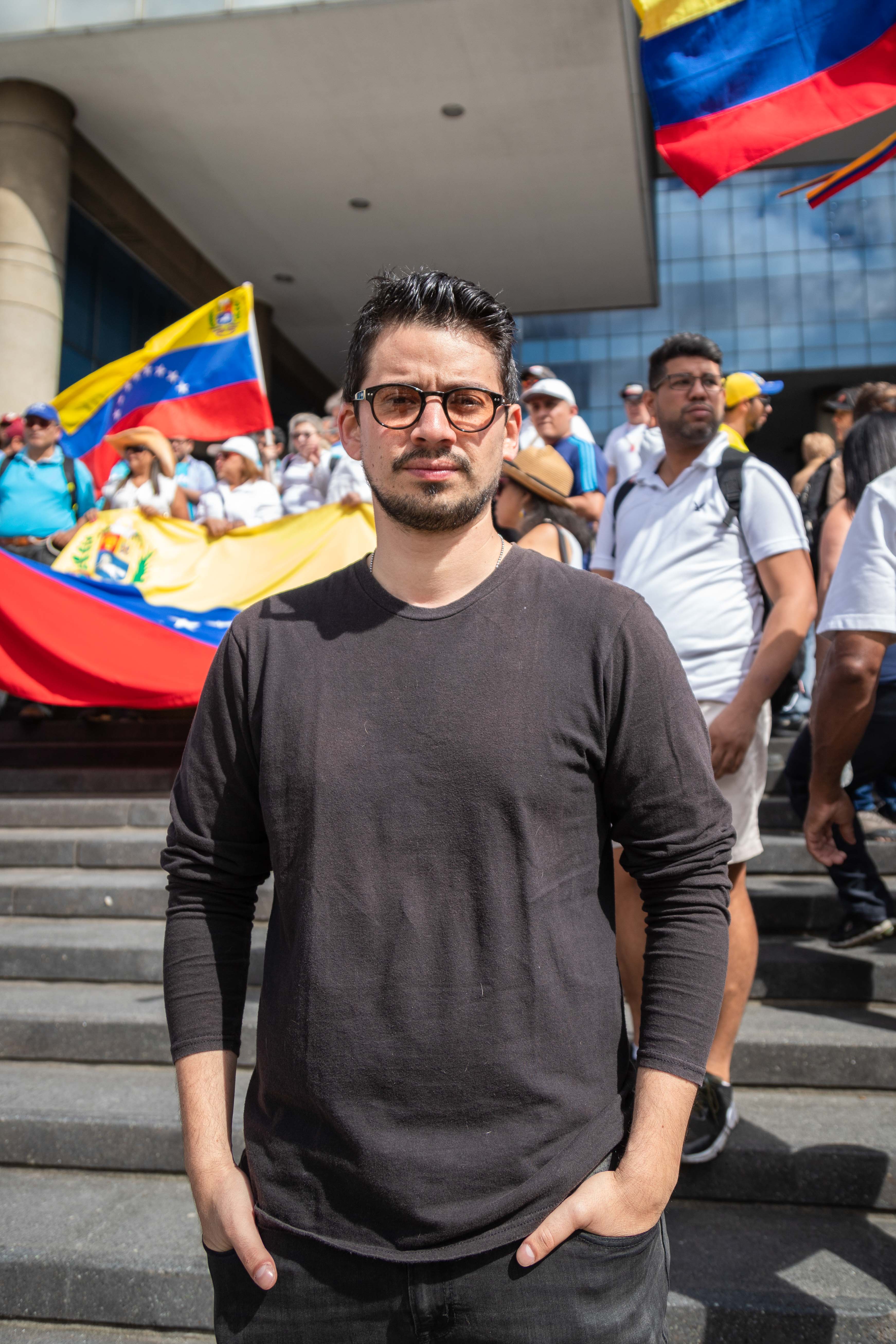
Manuel Angel Redondo, 29
I’m very concerned that the salaries of teachers at any educational level – whether it be pre-school or university-level – [are not fair wages]. And if those are the people we’re entrusting with the future of our country – people who can barely support themselves with their work – we are in a very, very complicated situation.
I work in communications [in] a country where a majority of mediums are either shut down … or the state owns them. If someone like me, who is up to a point insignificant, [is censored for using] humor to talk about what’s happening in the country, imagine the more serious journalists, people like César Miguel Rondón, who have had to leave.
I hope to participate in the reconstruction of Venezuela. I’d like to think that in the next 20 years of my productive professional life, I can dedicate it to truly feeling like I’m working on something that will bare fruit in the future.
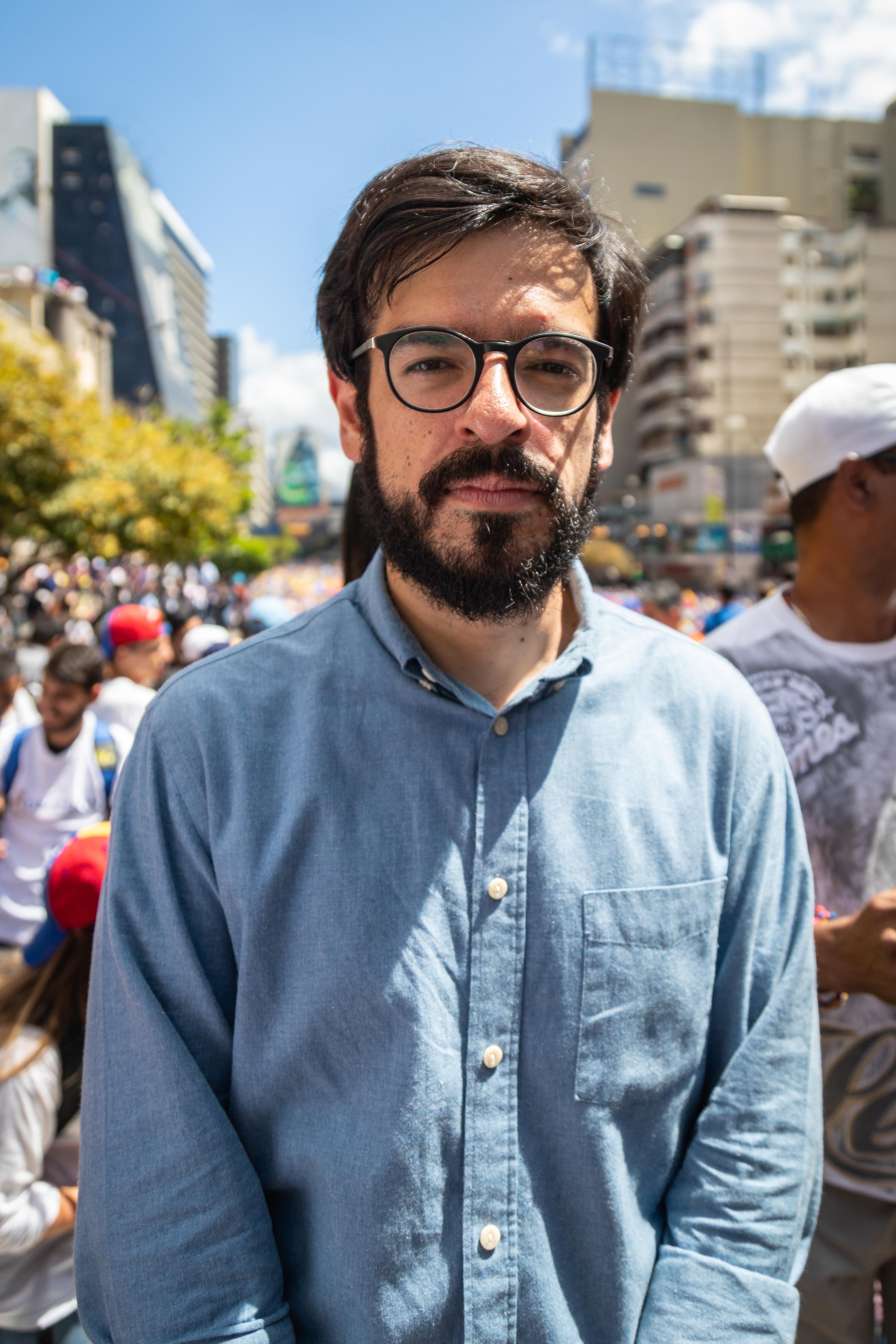
Miguel Alejandro Pizarro Rodríguez
The educational system in Venezuela today is a system in crisis. It’s an educational system that ends up strengthening the idea that the place in which you are born either condemns or [propels] your future. Our system used to have three clear branches – one for humanities, one for hard sciences, and one for [technical skills]. Today, it’s been reduced to a [skeleton of its former self], which unifies subjects but does not allow the creation of individual criteria or the strengthening of areas that are not traditional. That means that, for example, those who have less and don’t want to attend a university and instead want a technical education to become a construction worker, a plumber, or those middle class families that grew through the administrative or secretarial track, today, there’s no educational space for them.
[My career] has been affected in many ways because of the political situation. Us as representatives, we don’t have the ability to legislate in traditional forms, control the [poder ejecutivo] in traditional forms, or to construct the traditional bases so that the function in the same way they would in any other parliament in the world.
The political situation has also made it so that many people, for quite some time now, have believed that this country doesn’t bring them any opportunities or a future, and they looked for other options outside of our borders. I believe that this is changing and despite the issues the country faces today, there’s a lot of hope that makes people feel committed to [this country]. There are no mediums of mass communications as they exist in other healthy democracies so we can [disperse information]. There are no solid institutions that allow you to serve as a counterweight to the state.
I want a future, first of all, that brings peace. I believe that the most important and the biggest fight in individual terms is human dignity. [I hope to also see] the reunification of families, a future where all people return to this country. I want a future where politics are synonymous with honesty and service and not with problems and the darkness that we currently have. And in my case, I want a future where I can be useful.

Barbara Mota, 16
I am in my fourth year [at my school] and [soon] I’ll be crossing over to my fifth year, and the truth is that during my bachillerato – first year, second year, and third year – the deteriorating of the teaching staff has been greatly seen. Right now there’s not enough professors because they want to leave and their salary is not enough.
I hope that the current president – not the interim one who is Guaidó but Maduro – tries to understand that we don’t want him here and to please vacate the office so that we can be free and live normally in a normal country. At 16, I can’t leave my home because insecurity encompassed our lives, every day.
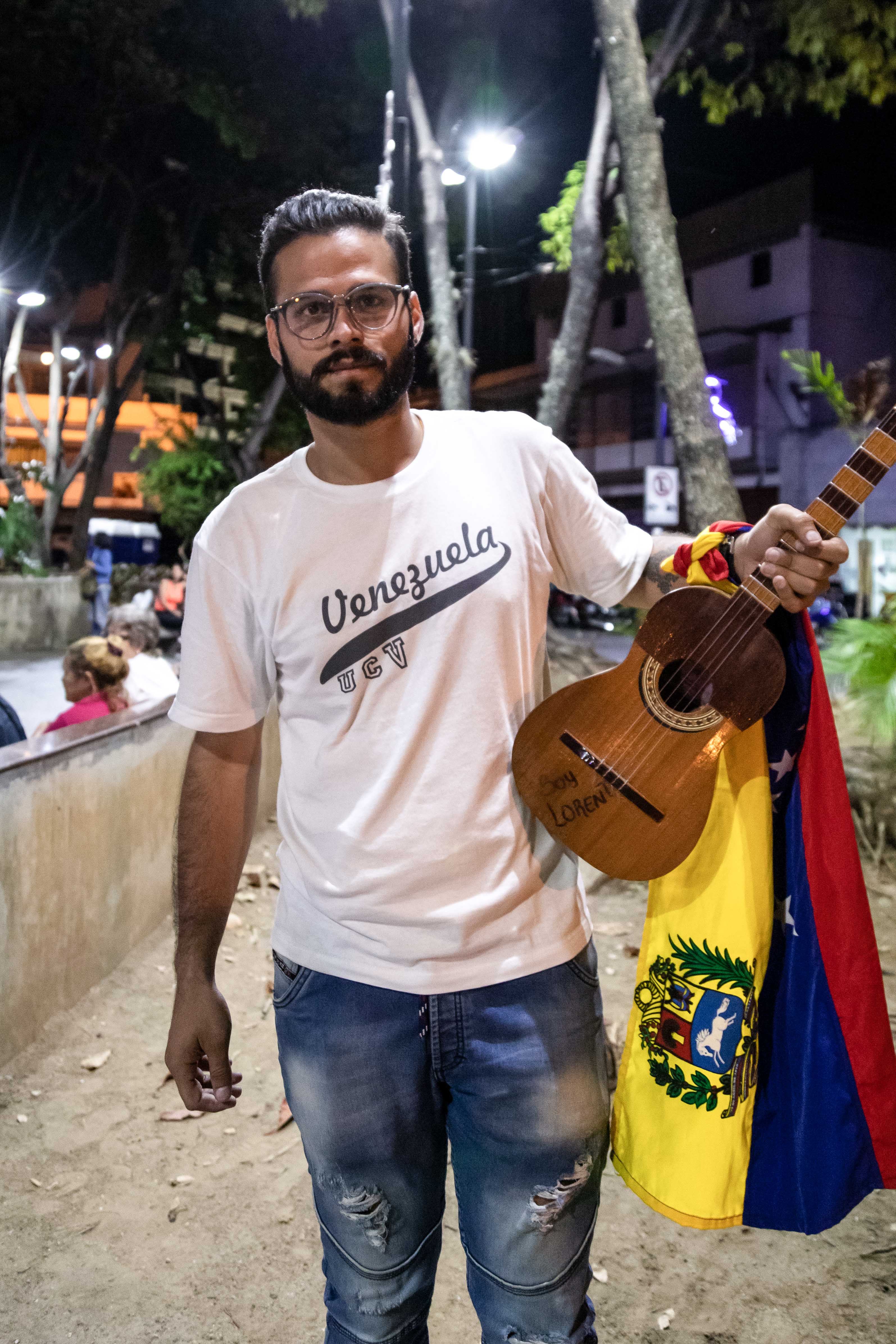
Jhonny Medrano, 25
It’s evident the deficit we currently have. We’ve had a setback during the last 20 years that’s led to the total breakdown of the [educational system]…. Thank God there’s still autonomous universities, universities that believe in learning, believe in teaching, in the formation of excellent professionals and we should keep positioning those universities as north, and that’s why we should keep fighting for our education.
I’m a musician. My career has been affected not just in the musical part but in the architectural part. I’m almost an architect. It’s taken a lot of effort because we all know the reality, many of us have to study and work, work and study, to be able to pay for our studies. And in the music as well as the architecture, the polarization has led to us not having workplaces in any state, in any part of the country because it has caused unimaginable catastrophes to the student body and in the professionals that are coming out of the universities. If you’re not a party member of the government that’s empowered, that has Venezuela [trapped], you don’t have opportunities to work.
I hope for democracy, I hope for freedom of expression, I hope for plurality, I hope we’ll be able to think freely, I hope we can keep conserving that sense of being Venezuelan.
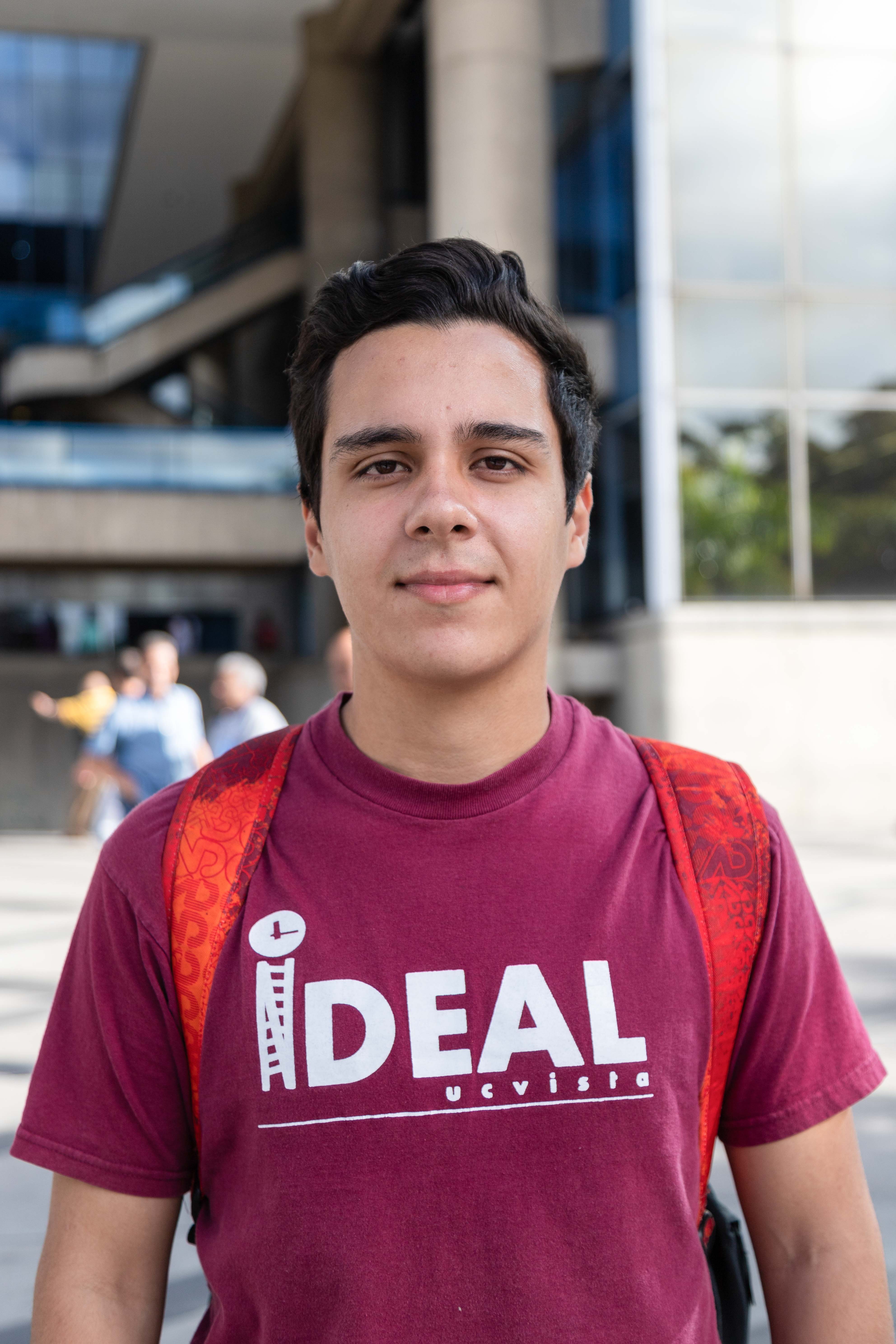
Diego Padrón, 19
For some time now, the educational system in Venezuela has been sharply recoiling – it’s one of the byproducts of the grave crisis we’re living. Many professors have had to leave the country. In many colleges, education centers, and even universities, students were left unable to attend classes. This mediocre system that the government has implemented – at colleges and in public education – is a setback at the educational level.
What I hope is what all Venezuelans hope: [a future] where we can graduate, become professionals and have a steady job, that we don’t have to leave this country in search of opportunities, which we unfortunately do not have here in Venezuela.
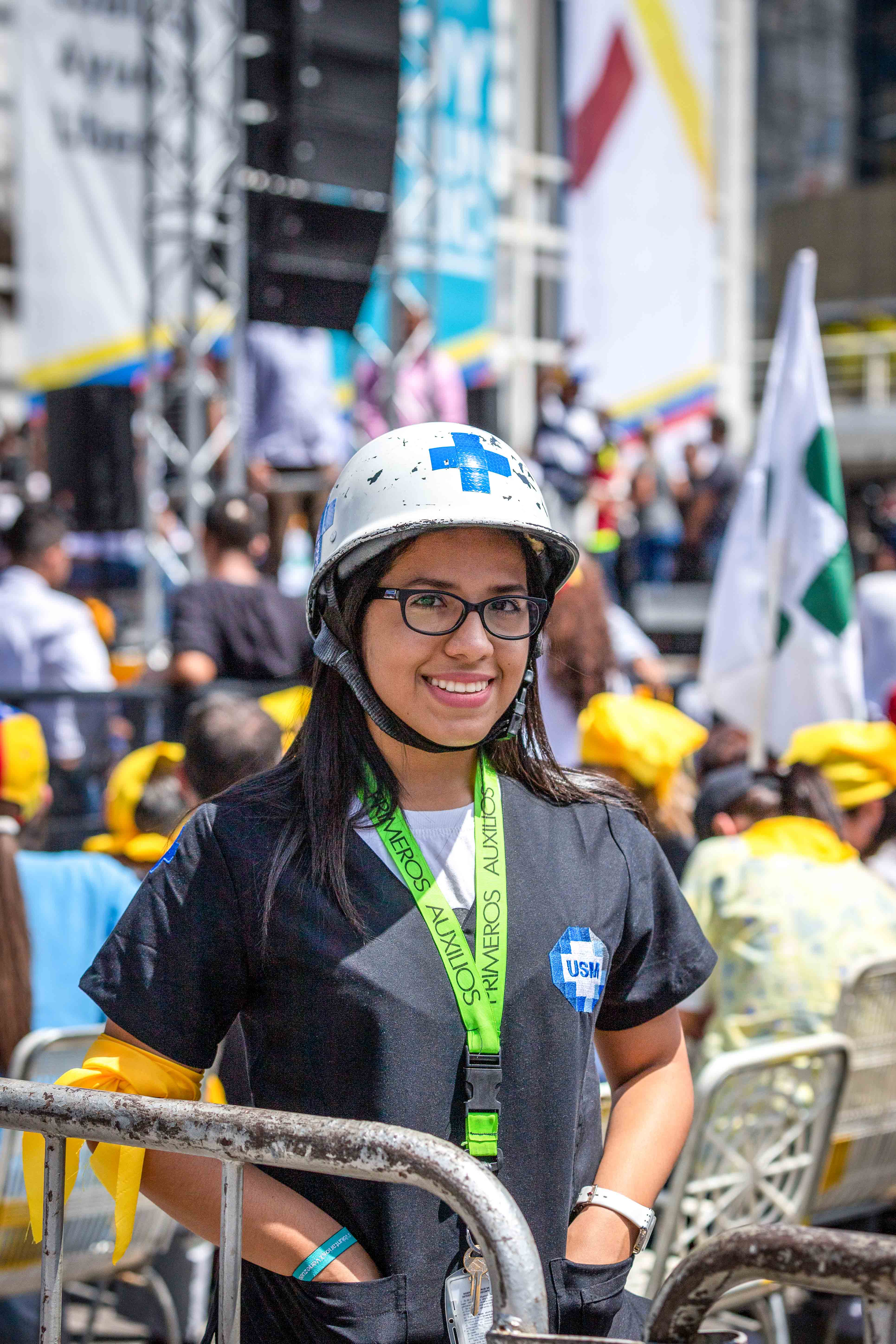
Barbara Ferrero, 21
We have the desire, we have the talent, but we don’t have a way to develop them. And I believe that this is what we have to work on, because students and other Venezuelans want to study, want to progress, they want to grow, and we don’t count on [governmental] resources.
I am an ontology student. A majority of the supplies for ontology [courses] come with a high cost. Many of my classmates who have the talent and who thought they could pay for their schooling have had to drop out because of inflation, they can’t afford it.
For the future of the country, I hope for a united Venezuela, a Venezuela where … societal differences don’t exist, where political differences exist, where we’re all one.
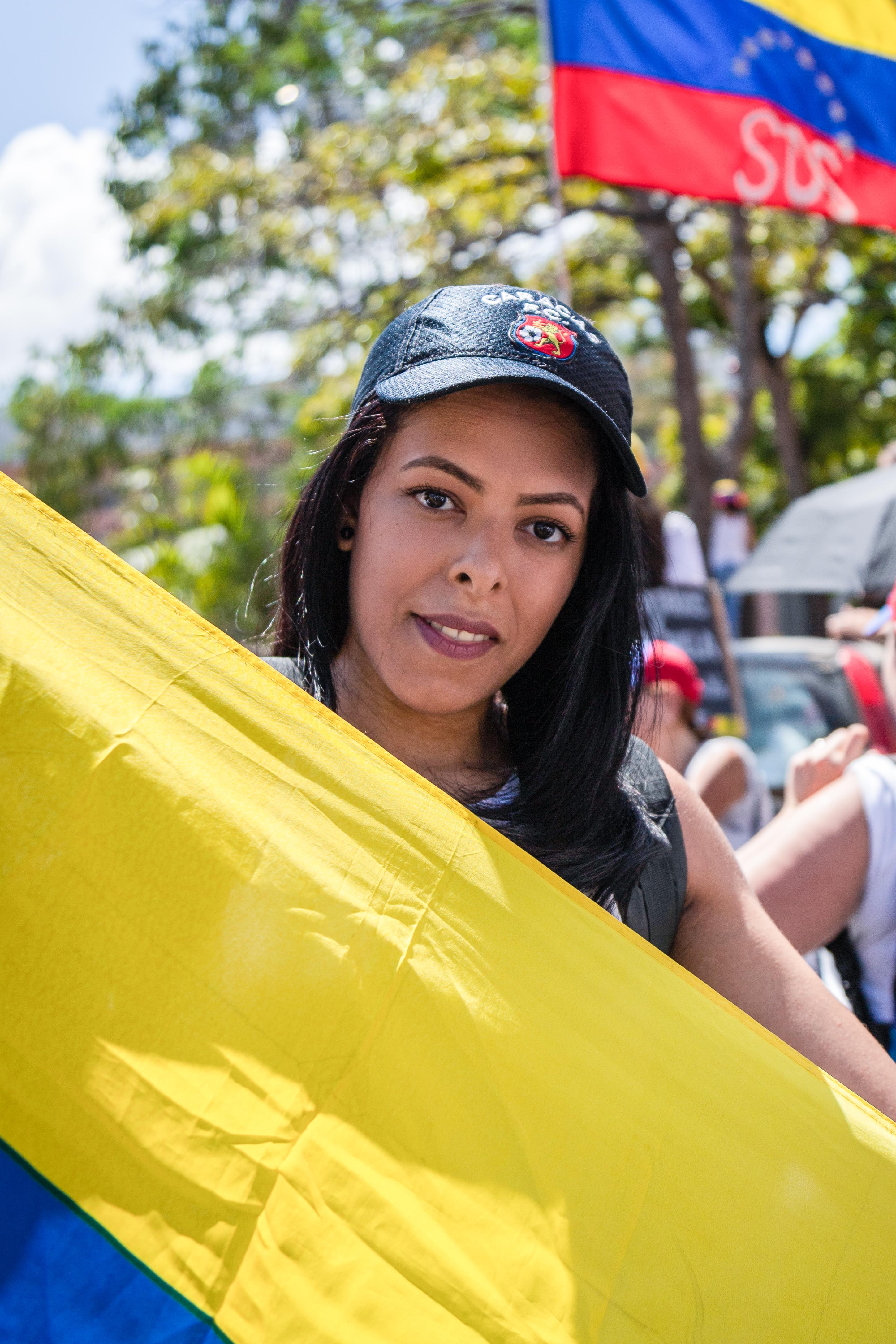
Aliana Ayala, 26
[The educational system] is a little deficient because the situation in this country is so difficult. Professors’ salaries are very bad, and even me as a professional, my salary is not enough for anything. I currently have a degree in public accounting, and I am an external auditor, and that’s affecting me a lot in the workforce.
I have faith that this will change, and that I’ll be able to have a house, a steady career, children in the future, and good health. I have faith that [Juan Gerardo] Guaidó will change this country, and I hope businesses will come and invest in Venezuela.
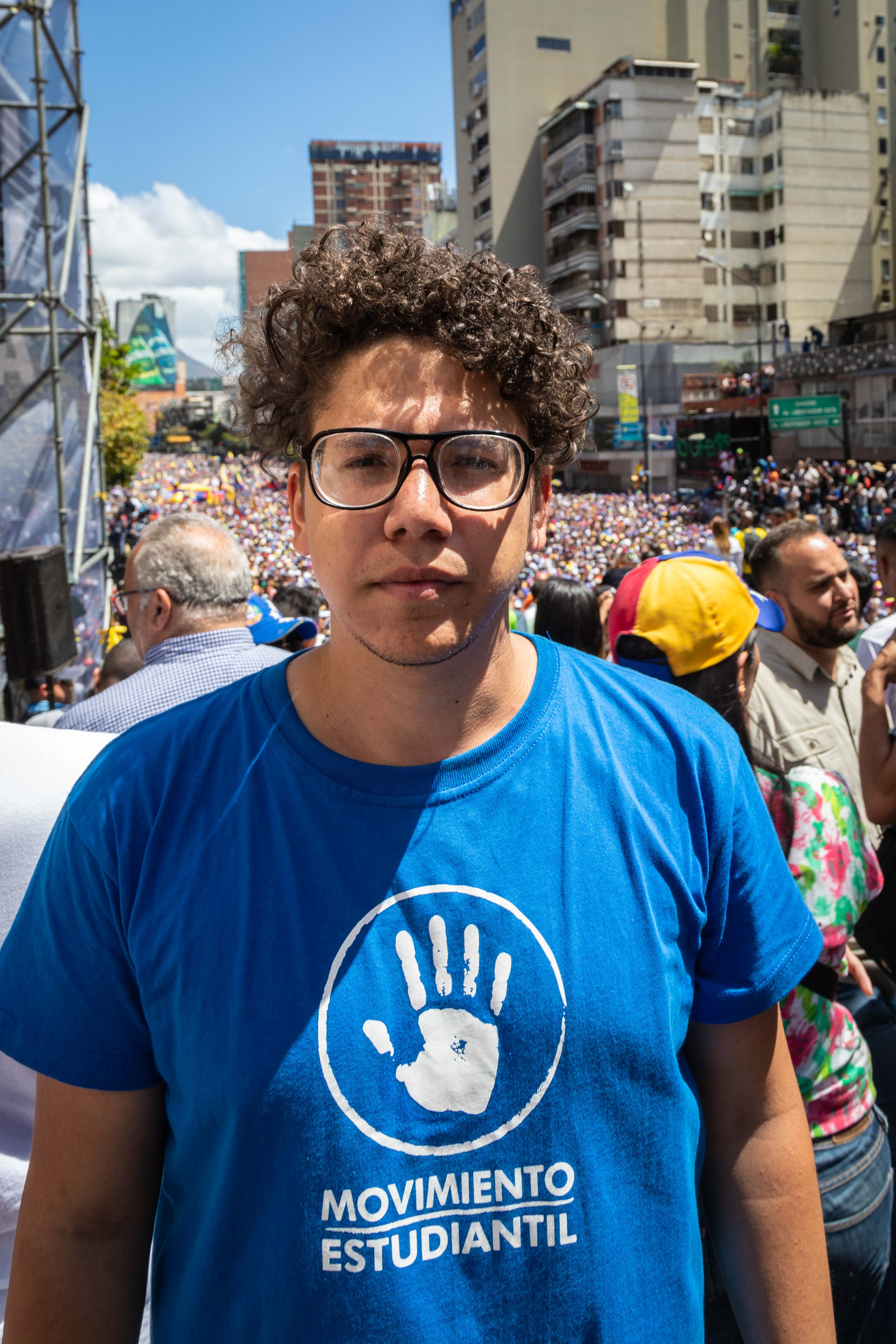
Alfredo Garcia, 25
The educational system currently has not only great deficiencies, it’s also structurally, we can say to a large extent, outdated. Today, it’s urgent that the transitional government, students, and the youth get involved in the profound debate on la ley orgánica de educación and la ley orgánica de ciencia y tecnología … so that we can generate a new model for universities.
In the last 10 years, the educational system, especially at universities, has been greatly affected. For more than 10 years, for example, at the Universidad Central de Venezuela, we haven’t received the totality of requested budgets.
I have a dream that in reality, is not difficult to fulfill. I dream of seeing my university free. I dream of seeing our streets safe. I dream that with our work, with our jobs, we can have the possibility to buy everything we want. Those are my dreams. And also that the politicians be at the service of the people, not against them.







